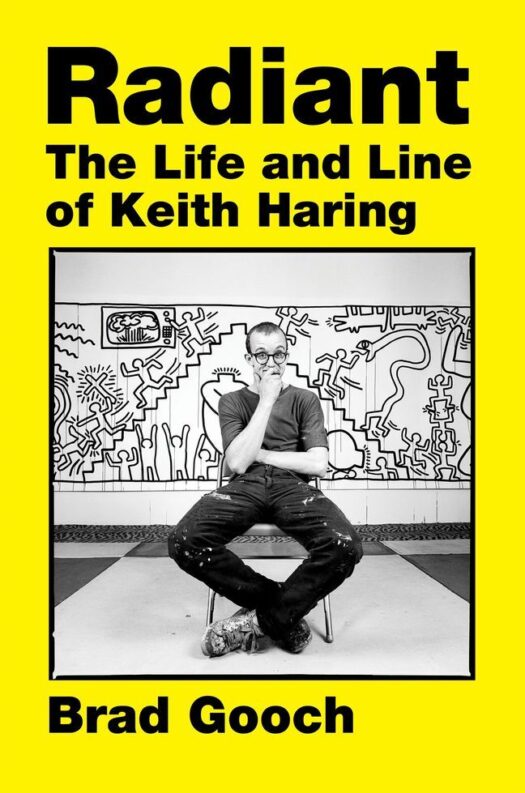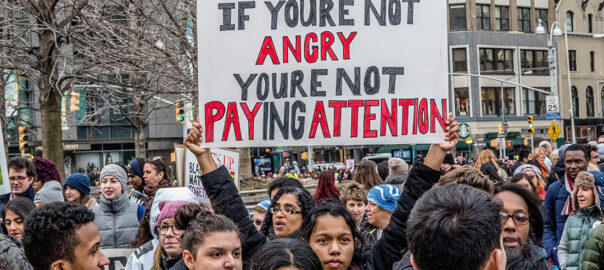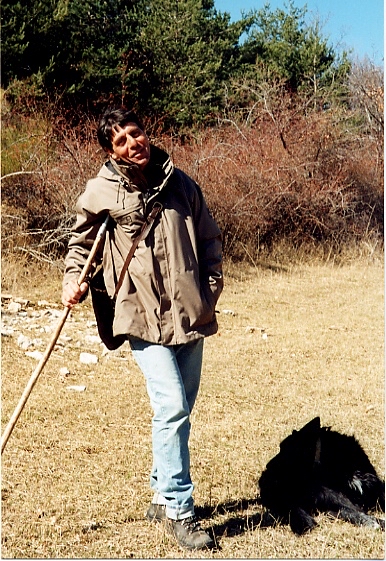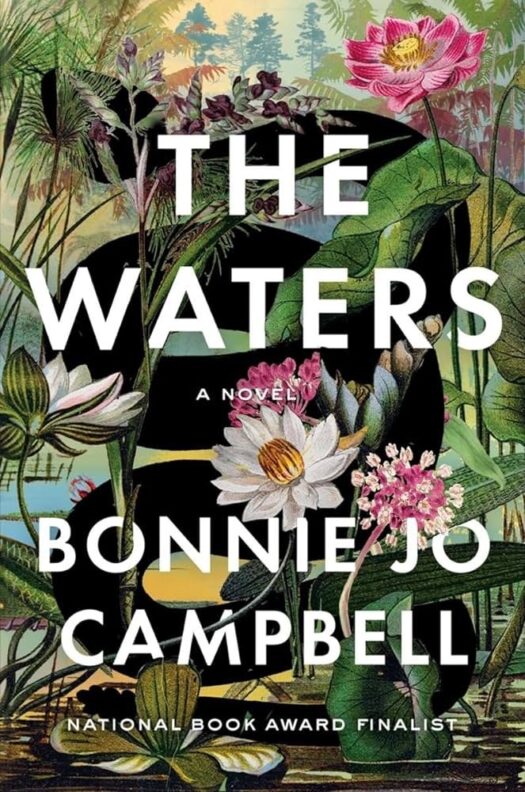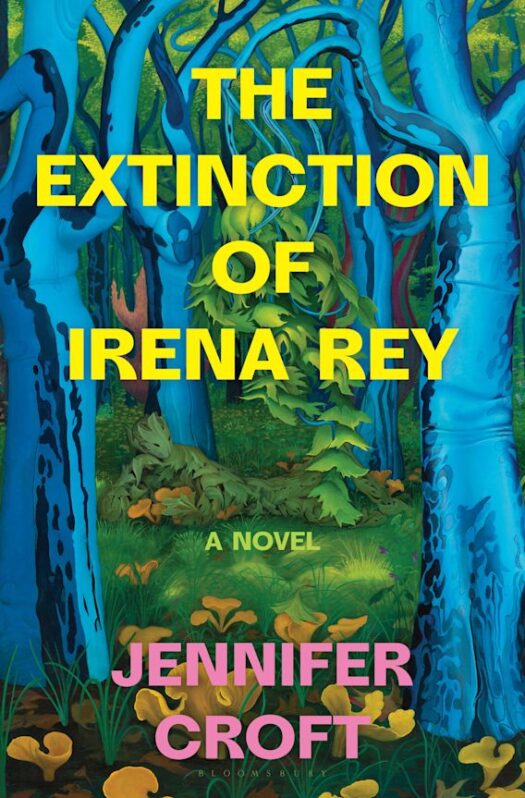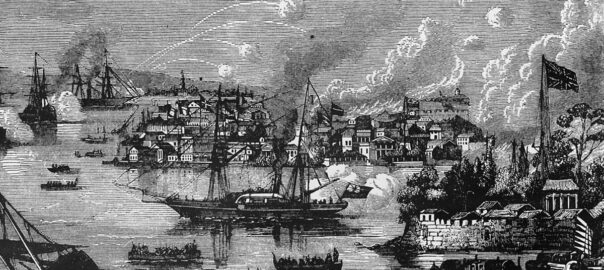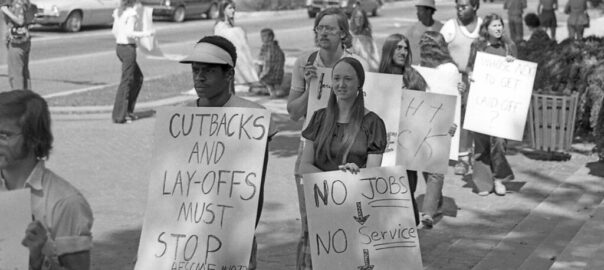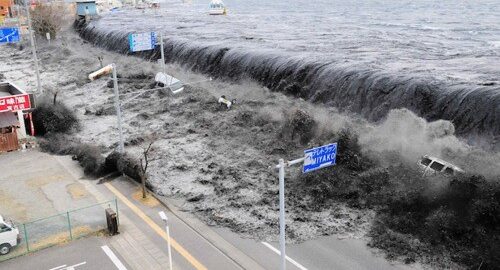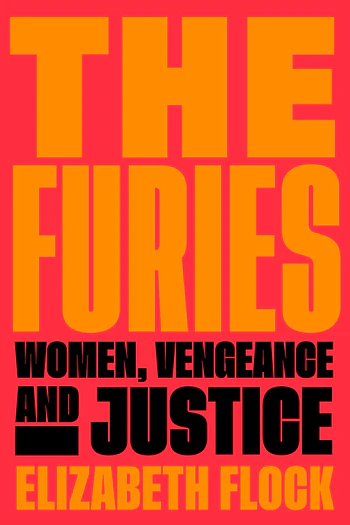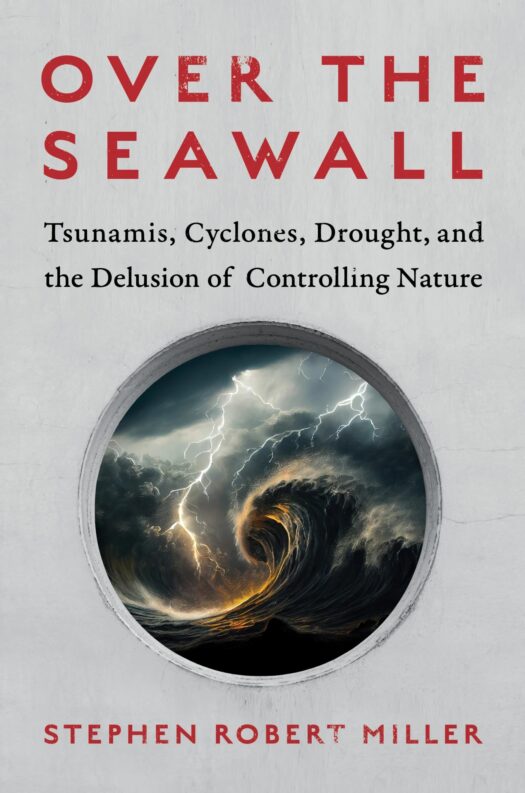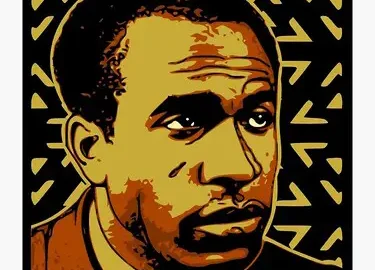Podcast: Play in new window | Download
Subscribe: Apple Podcasts |
Is identity politics keeping us divided? And how can activists build solidarity with others while fighting for their own rights? We talk with activist, educator and organizer Michael Zweig about his book, Class, Race and Gender: Challenging the Injuries and Divisions of Capitalism.
Then in honor of Spring, Host Francesca Rheannon reads her story, The Sheep’s Blessing. It’s about an encounter in the backcountry of Provence that illuminated the sacred bond between a flock of sheep, a dog and a shepherd.
Writer’s Voice — in depth conversation with writers of all genres, on the air since 2004. Rate us on your favorite podcast app! It really helps others find our show.
Like us on Facebook at Writers Voice Radio or find us on Threads and Instagram at writersvoicepodcast and at X/Twitter @WritersVoice.
Key words: Michael Zweig, class, race, gender, intersectionality, identity politics, podcast, author interview, politics
Read The Transcript
Read more: Michael Zweig: Overcoming the Divisions of Class, Race & Gender
The Rise of Identity Politics
The movements to support identity rights were a key leap forward in the latter half of the twentieth century. The struggles to protect the rights of racial minorities, of women, of LGBTQ people addressed grievous social wrongs and won important victories. Victories that are being undermined today.
But those movements also took place at a time when the movement to support working class rights and unions was on the wane. One could argue that identity politics replaced class politics, especially in the Democratic Party, but also in the sphere of larger mass movements.
Challenging the Injuries and Divisions of Capitalism
In his book Class, Race and Gender: Challenging the Injuries and Divisions of Capitalism, Michael Zweig says the thread that weaves together class, race, and gender oppression is capitalism, a system that divides those it exploits in order to maintain its rule.
Zweig illuminates the fundamental mechanisms of capitalism, unveiling the root causes behind a myriad of pressing issues plaguing our world today, from income inequality to environmental degradation, from militarism to systemic racism and patriarchy. In Class, Race and Gender, Zweig dissects the interconnectedness of these phenomena, tracing their origins throughout US history.
Drawing from his own experience as an activist, educator, and organizer, Zweig offers not only a a deep understanding of structural inequities but also practical strategies for transformative action.
The Sheep’s Blessing by Francesca Rheannonn
Springlike weather over the last few days has put me in mind of another Spring I experienced over 20 years ago in the beautiful back country of Provence, in the foothills of the Alps.
I was living in the house of my friend Fabienne, who had gone off to Paris for several months during the winter. I wrote a story about an encounter with a shepherd I had on the first spring-like day at the end of January, 2002. The story, “The Sheep’s Blessing,” was published in 2003 in an anthology of writings about Provence, Travelers’ Tales Provence: True Stories.
The shepherd Hervé, who I met that day, became a good friend. He turned out to be a true philosopher of his profession, a kind of guru/revolutionary of the shepherd’s life. In the months that followed, I went on many walks with him and his trusty sheep dog, Tango. I share my first encounter with him in this episode of Writer’s Voice.
Transcript of Writer’s Voice Interview with Michael Zweig
Mike Zweig, welcome to Writers Voice.
Great to be with you.
This is a wonderful book, Class, Race, and Gender, Challenging the Injuries and Divisions of Capitalism. So right at the top there with your title, we have the notion of intersectionality. Intersectionality is something people have been talking about, but I’m not sure they’ve been practicing it as much as they should be. And you say that in order to really understand race and gender, we have to understand their connection to class. So explain that.
And I would also say in order to understand class, you have to understand its relationship to issues of race and gender because these things are mutually determined.
Race and class are different things, but they are not independent of one another.
And the same is true for race and gender, and gender and class.
These things have their independent existence or their specific characteristics that mean that they’re not just all the same, but they are very intimately connected and mutually determined.
So if we look, for example, at race and class in the United States, from the very beginning of the colonies, the English colonizers brought with them English and African indentured labor.
And that indentured labor, whether it was English or African, were under similar circumstances and worked for a period and got their independence and then got their land or went into whatever activities that sustained them.
But that joint workforce of English and African labor rebelled against the English colonizers, the English ruling class at that time, in the late 17th century.
And so the English, in order to divide the African and the English labor, instituted racial slavery.
Now, we know in this country that there has been a history of slavery.
Maybe there are some people in Florida or Alabama who want to say, well, maybe not, or maybe it was really okay.
But we know that slavery was a very important part of American history.
What’s often overlooked is that it wasn’t just slavery, it was racial slavery.
It was the enslavement of people of African descent without the enslavement of people of English and European descent.
And what that did, not only to subordinate and to destroy the independent lives of African labor, it also weakened English labor and European labor that came to be known as white.
It wasn’t white before the imposition of racial slavery.
That wasn’t a category, a social category.
It became a social category because racial slavery was imposed in order to weaken and divide the working population.
And that division continues to this day, and it doesn’t adhere well to the interests of white workers because if you look at areas where the legacy of racial slavery is the sharpest in Mississippi or South Carolina or Georgia, you’ll find that those are the areas that have, for white workers, the lowest wages, the least opportunity to join unions, the most state and government opposition to unions, the lowest life expectancy for white people, the highest birth fatality rate for white women and children.
So white people have also not really benefited in the end from those divisions that racial slavery imposed.
So that’s why I say you can’t really understand class in this country without understanding its intersections with race.
And we could tell a similar story on issues of gender and its relationship also to race and class.
Yeah. I wonder if you could outline a little bit about that in terms of gender.
Well, gender oppression has been with us for as long as we know, not just a feature of capitalism.
And it is not just a feature that capitalist ruling elites have imposed the way that they did with racial slavery.
So the operation is a little different.
But what capitalism has done and what capitalism in this country has done is to take that history, that long history of patriarchy and imposed it with special characteristics that enhance the power of capital and again weaken the unity and the opportunity for working people to advance their interests.
And that happens well through a number of different mechanisms.
It happens through the imposition of lower wages on women for the same work as men.
It happens when women are basically forced in the culture, in the capitalist culture to stay home or to take the responsibilities of household labor and the raising of families often on top of their work in the workforce.
So that’s the double shift well understood in the feminist literature.
So we have, again, the opportunity to look at gender also through the lens of class.
For example, in the second wave feminist movement that we had in the 1960s and 70s that was very powerful in opening up many opportunities to women for job opportunities beyond teaching and nursing.
If we look at the trajectory of that success, it really has affected most positively professional and upper class women.
Women in the ruling class absorbed into corporate executive positions that bring them directly into the ruling class.
Women who are CEOs of major corporations, they’re not as many as men because male chauvinism and patriarchy still continues.
But the advances of the women’s movement in the 60s and 70s is largely accumulated to professional and capitalist class women.
Working class women are still suffering very much under the differentiations between men and women in the workforce and in wages and in working conditions.
And so we see, again, the intersection and the mutual determination of class with gender in our own lifetimes.
And so in this book, I mean, this book definitely deals with capitalism, but it also deals with it from the focus of how to build a movement to expand the power of the working class and even ultimately change capitalism in the medium term perhaps and replace it in the long term. So I love the way you focus on the practical implications of all these conditions. And you point to the fact that back in the times that you and I came out of the struggle, the movement, it was already one that understood intersectionality quite well.
And it then went through a long period where that fell apart, where identity politics really took over. And it seems to me that intersectionality and awareness of it is happening more now than it’s been. A perfect example of this is the George Floyd, the movement, the Black Lives Matter movement, when you saw so many people who came out into the streets, there was unity. Even if there wasn’t totally an understanding of intersectionality, there was unity between white and black people. It was a multi-ethnic, multi-racial movement. And the backlash to it was absolutely fierce, very much like the backlash to Occupy Wall Street. So I wonder if you could talk about these efforts to bring people together, and then how do we confront the backlashes that almost inevitably follow?
I think we need to look at our social movements, again, not just in isolation.
There is a women’s movement, there is now a very powerful movement around reproductive rights and medical care for women and children.
We have a very important civil rights and black freedom movement still operating and active around police issues and other things.
We have a very powerful environmental movement that is rising up in the United States and all over the world.
So all these are individual movements.
And what I’m trying to get across in this book, Class, Race, and Gender, challenging the injuries and divisions of capitalism, the divisions among all these movements, for example, the divisions that keep us isolated from one another as we take up only the immediate issue that concerns us, whether it’s the environment or police brutality or reproductive rights or whatever it turns out to be.
We need to understand that those individual movements are confronting, each of them, particular aspects of how capitalism works, so that we’re really all involved in one broad umbrella movement, which is a movement to challenge the power and the divisions and the injuries of capitalism, which is what the challenge to the environment is.
It arises from capitalist depredation of natural resources.
The women’s movement derives from, in our country at this time, a challenge to capitalist interests.
If you look at the people who are trying to suppress women in Alabama, they’re the very same people who want to keep people from joining unions.
They’re the very same people who want to destroy voting rights for Black people.
That’s not just a coincidence.
That’s because they represent certain interests which have their implications across all different aspects of life, including religious belief, including ethical and value orientations.
So, I think that what we need to do is to begin to look at how each of our movements really reinforces and cooperates with and resonates with all the other movements into one large, coordinated, in more or less ways, broad campaign that challenges the power of capitalism.
Now, in the 1960s, the movement as it was at the time, that was the situation.
We were involved in the anti-war movement, civil rights movement, women’s movement, gay and lesbian rights movements.
But each of us understood that a victory in our movement, in some other movement, was a victory for us.
We were looking over our shoulders and forward and around us at all the different strands of that movement that challenged capitalism at the time.
And capitalism itself as a system was very much under attack and on the defensive in the 1960s and early 70s.
So, we are not quite at that stage yet where all of these movements that are percolating, bubbling up, see each other as jointly struggling against a common structure.
I think the closest thing these days to that is the Poor People’s Campaign, which is co-chaired by the Reverend William Barber and the Reverend Dr. Liz Theoharis.
Those movements that bring together in what Reverend Barber calls a fusion politics is, I think, the future that we’re trying to, I think, most productively build on right now.
Yeah, and that’s the Poor People’s Campaign. It’s so important. I know that they’re doing an enormous voting drive to get out the vote among poor people who tend to vote in very small numbers proportionally. Let’s talk about the working class. I think Biden talks about building out from the middle out.
You know, I’d say the mainstream view is that we’re a middle class society.
But you say, in fact, the majority of Americans belong to the working class.
You say that’s the country’s best kept secret.
Who are the working class?
And this is broadly defined.
Then I’m going to ask you about the white working class.
Well, when we get to the white working class, let me just preview of coming attractions.
There is no such thing as the white working class.
There is the white component of an interracial, multigenerational, multiethnic working class.
But the working class doesn’t have a particular color.
So I think that there’s some confusion there.
But to your main initial question, you know, we we think about class in different ways in this country.
So when Joe Biden went to war in Michigan last year to march in to stand with the autoworkers on strike and Sean Fain, the president of the UAW, was there with him.
President Biden talked about the work, you know, unions build the middle class, the middle class built the country and unions build the middle class.
Sean Fain gets up and says, we’re talking about the working class here.
This is the working class in motion and the working class needs to join together.
And that’s one reason why Sean Fain negotiated a contract that ends in 2020 in 2028 and has encouraged all unions to negotiate contracts.
Then and at the same time in 2028, so that they can all go out in a general strike against capitalism, because Sean Fain understands class as a question of power.
The power of working people to unite in order to challenge and to disrupt the power that capitalism and the capitalist class brings against us.
So in this country.
We often talk about class in terms of income.
You know, there’s a broad middle income group of people, and then there’s a fringe of rich people at the top and poor people at the bottom.
And that’s true.
You can sort of organize data that way and place people according to that income spectrum.
But I think that that’s a very misleading and ineffective way to think about it.
To me, the question of class is a question of power.
Now, we don’t have a direct measure of power the way we do of income.
So I used occupation as sort of a stand in for how much power you’ve got.
If you were working in a call center with a headset on for eight hours a day, you don’t have a whole lot of power and you’re in the working class.
If you run the company that runs that call center, you have a lot of authority.
If you’re the manager, the senior executives, the CEO, the chief financial officer, the legal counsel, general counsel for the company.
Those are the people who, when the door closes, they’re in the room making the decisions.
And that’s the capitalist class, because they have the power to organize and to deploy the labor that they hire.
Now, in between the capitalist class and the working class in that power grid, there is a middle class of supervisors and managers, of small business owners, independent entrepreneurs, maybe run a fuel delivery business or they have a bodega or they have a small shop somewhere, metal shop.
And then there are professional people, doctors, lawyers, who are also sort of in the middle.
They have certain characteristics and power that capitalists might have, but they’re also constrained by the power of capital in different ways, the way workers are.
So that middle class is about 35, 36 percent of the population.
The working class, the people who just go to work and do their job and go home or go to another job under the supervision and under the control of others, that’s 62 percent of the population in this country.
This is a working class country.
And if we understand class as a question of power, coming back to the intersectionality, it’s much easier to see class in a relationship to race and gender because race and gender are also issues of power.
They have implications, of course, for income and wealth, but that’s not their foundation.
The foundation of race and gender is power and the foundation of class is also power.
I think that’s very useful because even I don’t think you can divide by profession. There are many doctors who really don’t have any power. The insurance companies script their every moment down to the second. And in fact, there are doctors who are striking or joining unions. And so I think that’s a very useful lens. It’s not something I think anymore that we can divide by occupation.
But let’s talk about the white working class because even if it’s just a section of the working class, which I agree with you on, there’s a certain political role that it is seen as playing, whether it actually plays that or not is open to question. We spoke recently with Les Leopold, who wrote a book about Wall Street’s war on workers, and he made the point that mass layoffs have been a key reason why white workers have deserted the Democratic Party because they feel that their class interest is not, in fact, being represented. You also say that white working class men are not a lost cause, as many people have written them off as. So could you talk about that?
I think that white workers and black workers have suffered over the last 50, 60 years since the late 60s or certainly since the early and mid 70s as capitalists have increased their power and increased their authority and their control over every aspect of life in this country.
Pushing back the gains that workers made in the unionization drives of the 30s, 40s, and 50s, pushing back the gains that black people made in the civil rights movement, pushing back the gains that women made in the women’s movement.
All that pushing back and grabbing of power by the re-grabbing and reasserting authority that the capitalists have imposed on our society, that’s had a very detrimental effect on all workers and certainly on white workers.
Now, what I think is driving a lot of the hostility that white workers feel towards conditions of life in this country is that they’re just not used to being on the losing end of the stick.
They’re not used to, white workers are not used to a situation in which, as they put it, the country’s disappearing, the country’s changing from under them and they can’t really do anything about it.
Now, that is represented by the loss of manufacturing jobs, union jobs, the weakening of unions, now unions in this country represent something like 6%, 8% of the working population, maybe 10% if you include all the public sector workers.
It used to be 35%, 40% and that was a whole different world in which workers asserted themselves and were present in the political calculations.
Presidential campaigns always began in Detroit on Labor Day with a big march, the Democratic Party was there and had a presidential candidate, was there with workers.
That’s a very unusual thing these days and workers notice that and white workers in particular, I think, because they were used to being on the top of the pile and not having those declines affect them, are especially aggrieved.
And certainly the Democratic Party since Bill Clinton, and you could say, going back to Jimmy Carter as well and issues of regulation, has abandoned the working class, has abandoned working people, whether they’re white, black or Asian or Native American, whoever they are, Hispanic doesn’t matter.
It’s the capitalist class that the Democratic Party has subjected itself to and has taken over, and I think that that is something that white workers understand very well.
And ironically, it’s something that Donald Trump now is running around saying to black people, what are you going or hanging out with these Democrats for?
What have they ever done for you?
And that has a certain resonance because the Democratic Party has been taken over and is another party of the ruling class in this country.
The problem is for black, for white workers, is that the Republican Party under Donald Trump is no solution because he represents and the people who are running the Republican Party represent the forces that really want to crush labor and impose restrictions on unions and impose right to work laws that keep unions from collecting dues from members or from their workforce, even though they have to represent them in negotiations, all kinds of things that are terrible for working people.
That’s what the siren call of Donald Trump is about.
Of course, he doesn’t talk about it that way.
He talks about it.
We got to get back to the way things were, which means when white people and white workers were doing well.
And of course, they want to these Republicans want to blame it on black people.
They want to blame it on immigrants.
They want to blame it on people who, you know, aren’t like us, which means aren’t white.
And that’s poison.
It’s been poison since the later part of the ninth of the 17th century in this country.
And I think that we have an obligation and that’s what in part this book, class, race and gender, challenging the injuries and divisions of capitalism in order to challenge those injuries and divisions.
We have to understand that they are of capitalism and we have to understand that there is a unity and a complexity of race, class and gender that has to be mobilized to challenge it.
And this book tries to explain how that works and then what the immediate political implications are for how we do our politics.
So let’s move to those implications, Michael Zweig. You take up the issue of reform versus revolution. So I’d like us to talk about that. And first, lay out what reform would mean for a movement to take up. And then tell us what are the conditions necessary for revolution and are we there?
Well, let’s start with the last question first.
When we talk about revolution, sometimes in a very colloquial, in a very offhanded kind of way, well, you know, we’re for revolution.
But if we really look at what does that mean, and I have some quotations and some reflections on what revolution really means in the book from people who practice revolution, from Mao Zedong in China, from Lenin, from Lu Xun, who was a cultural figure in the Chinese Revolution.
And, you know, it was just the place to start.
Mao rode in 1927 from the countryside when the Communist Party leadership in China was just developing and they were in the city in Shanghai.
And they were very cerebral and intellectual in their approach to revolution.
And Mao was out in the countryside in Hunan province and he wrote them and he said, yeah, you know what, there’s a rebellions going on out here in the countryside that we don’t realize is happening in the cities.
But I’m out here in the country and let me tell you, revolution is not a dinner party.
Revolution is not just sitting around a table and thinking about things and talking about alternatives.
Revolution is a mass violent uprising in which people kill each other.
That’s what we’re talking about revolution.
Well, that was a pretty startling observation that Mao made.
And it turned out that in the making of the Chinese Revolution and the Russian Revolution and the Cuban and the Vietnamese and all other revolutions in the history of humanity, including our own, revolution is about a mass uprising that is a violent overthrow of the power of one class and the imposition of the power of another class.
That’s what revolution is.
We are so far from that condition in this country that it’s just not worth talking about revolution as a practical matter to guide our practice.
Lenin said revolution, there are three conditions of revolution.
The people can’t live in the old way anymore.
They have nothing to lose.
The rulers can’t rule anymore because they’re divided and they’ve lost all legitimacy and they can’t even mobilize an army because it’s divided.
And there’s a political party, there’s a political apparatus that can lead the masses of people to overthrow that weakened and divided ruling class and impose a new order.
So those three conditions of revolution that Lenin articulated and practiced in his practice, we can talk about whether it was good or bad or what it led to, but that is what I think we can use as a guidepost for the conditions of revolution.
We don’t have any of those three things.
So we’re not talking about revolution.
So what we are talking about is reform and deep reform of the way capitalism works.
And there have been periods where there have been deep reforms.
There was a reconstruction period after the Civil War.
There was a period of the New Deal.
There was a period of the Civil Rights Movement and the Women’s Movement after the 1955 bus boycott and then the uprisings that followed both in the black populations, but also among the Chicanos and Hispanics, among women, gay and lesbian people, all that happened and resulted in truly deep transformations of the operation still within capitalism that represented true gains.
How did those things happen?
Well, they happened because there was a movement organizing.
Now, if we think about politics, politics, I think, has two components.
There’s the movement politics of mass mobilizations of people around grievances and around issues and around programmatic fixes for those problems.
And then there’s the political process of elections and bringing people into office who can actually implement the policies that are being promoted by these social movements.
So, as a practical matter for our purposes in the United States today, we have to pay attention to both of those aspects of politics.
And for me, in the way I think about it, movement politics are the dominant element or need to be the dominant element of those two.
And the reason for that is that movements are what create the demands and create the political program for elections.
Movements are also what throw up and bring forward leadership, leadership that’s grounded in those movements and grounded in the needs and the lives of the people who are in motion.
And then also, movements are what hold accountable those people who get elected and then go into office.
All too often, people come out of movements.
They develop an electoral campaign.
They get elected.
They go to Congress.
They go to the city council.
They go to the state legislature.
But then the movements that brought them there are demobilized because, oh, we have our person in Congress or, oh, isn’t that great?
We have the person as governor.
Well, you know, that person can do nothing without the continued agitation of the social movements that brought them to power.
So I think that where we are today is a need to bring together the different social movements that are bubbling up, coordinate them into a political apparatus, I think, within the Democratic Party that can, over the long haul, present a real alternative to the direction and to the class power that runs the Democratic Party and make it, again, into a true party of working class interests.
That’s a long-term project, but I think it’s the only project that’s in front of us.
I think that our history in this country of third-party politics is quite checkered and really has not been able to transform the society in the way that we need in coming years, in coming decades.
And so I think that third-party politics is really a distraction from the long-term haul we have to do, I think, within the Democratic Party.
Yes, so let me ask you because you also say we need to work within the Democratic Party, and you were part of the early work that organized something called the Labor Party, which was begun by my old mentor, Tony Mazzocchi, and the Labor Party was supposed to be a movement that would represent, obviously, the interests of the working class, and it failed.
So you say the best path for progressive politics requires working in the Democratic Party. How can we do that in a party where we know the leadership is so resistant to progressive politics, where PACs like AIPAC are trying to take down every single member of the progressive caucus, it seems?
It’s true that the ruling class rules the Democratic Party, but the ruling class rules society.
So we have a problem if we think we’re going to escape the clutches of the ruling class by going into a third-party politics.
We aren’t.
We’re even weaker on our own out in some left field somewhere, literally and figuratively.
One of the observations that I make in this book, Class, Race, and Gender, is that if you look at the history of deep reform, whether it is the elements that we talked about before, Reconstruction and this New Deal and Civil Rights Movement, none of that was possible, ever possible, without some significant section of the ruling class wanting it to happen.
There was a significant section of the ruling class that wanted the end of slavery and wanted Reconstruction.
There was not just the abolitionists.
There was a significant section of the ruling class of capitalists who actually wanted the New Deal and wanted union recognition, easier union recognition.
It’s amazing to think about, but it was true, because if you look at the legislative history, which I’ve done, of that New Deal legislation, particularly the Wagner Act that legitimized unions and gave them government support, the corporate leadership, at least some of them, were very, very worried about unrest in this country and the communists and the Bolsheviks and their influence here.
And Franklin Roosevelt was a part of the ruling class, and he was considered and called a traitor to his class.
And he even called it out in 1936 in his campaign and said, you know, there are people who hate me because I am for worker rights.
Well, I welcome their hatred.
That’s what he actually said.
In 1964, there were broad sections of the ruling class in this country, the white ruling class, that wanted the civil rights law passed, that wanted the voting rights passed.
They wanted that because they were involved in a Cold War ideological battle with the Russians all over the world and trying to defend American interests by claiming to be a democracy.
And they found themselves besieged everywhere in the world that that was a ridiculous claim, because look at what the situation is with the Negro people, as it was then called.
And so our campaign worldwide against the communist influence, large sections of the ruling class of this country supported the civil rights move and supported those laws.
Now, that didn’t mean that they weren’t really racist, because we got sooner after, as we know from the wonderful book, The New Jim Crow, we got a resurgence of suppression of Black people, even though we had those progressive laws on the books.
But we got those progressive laws, and they did make a real difference.
They were good things.
But again, I think if we think about, oh, the ruling class runs the Democratic Party, well, that’s true.
But if you shake the country and shake that class for power, it is possible and not only possible, but necessary to work with those sections of the ruling class that are open to genuine and deep reform.
And that is not impossible.
But in order to get it, we need to have not only connections to those sections to identify them, but we also have to have a social movement that scares the bejesus out of them and makes them pay attention to what we’re talking about and what our demands are.
And that’s, again, why I come back to the importance of social movements as the primary element of what’s needed.
But those social movements need political representation among the decision makers in Congress and in legislatures and in city councils and on school boards and everywhere else, because ultimately policy is decided in those bodies.
And if you don’t have representation there, you don’t have votes there, if you don’t have people there with a base, you can’t get anything done.
And I can see three critical points of movement within that. The climate movement, because I can see there is a section of the ruling class that is aware that climate poses an existential threat to its bottom line. The second one would be, in fact, the labor movement, which seems to be a formerly sleeping giant that is waking up and we’re thinking you mentioned Sean Fain of the UAW, particularly in areas like that. And then, of course, there is the movement for democracy, which is being so threatened. And it’s the last one that I’m so concerned about, because, you know, I know a lot of people who say, oh, I’m not going to vote for Biden because if Trump gets in, things will get so bad they’ve got to get better. But I think that that’s a fallacy. If we lose democratic rights, it’s going to be difficult to have those social movements.
I agree with you. But I think even within that broad anti-fascist movement, we have to be careful that there is within it a very articulate working class voice.
Otherwise, Liz Cheney is going to be the champion of the anti-fascist movement.
We don’t want Liz Cheney to be the champion of our movement for democracy.
That’s not a good thing.
And Rachel Maddow is putting Liz Cheney on her program in order to call attention to the dangers of fascism.
That’s a big problem.
We have to have people who come out of our movements, who come out of our concerns and our interests, working class interests, the interests of working class women, working class African-Americans, working class Hispanics, working class Asians, not ruling class Black people and Asians and Hispanics, of which now because of the movements that we had before, there are representations of all of those oppressed groups in the ruling class.
And even within the ruling class, they are often subordinated.
Well, I think that we need our own voices.
And that, again, brings me back to the need for a real powerful social movement among working people, which would, of course, include a conscious anti-fascist element to it.
And I think you’re right to call our attention to that. And how do we do that?
Because, you know, let’s talk about that election because it’s going to be critical whether we’re going to be able to have a working class movement or not.
You say there are two different strategies, reach out to minority groups on the one hand or, you know, stress the Democratic Party’s role or ask for its resurgence as a working class party. And you say that each path is a dead end. Why is that? And what’s not the dead end?
Well, I think that the two paths are identity politics is what needs to govern the development of the future strategy of the Democratic Party.
And that’s an idea that really in the long term because of immigration and because of birth rates and because of the way in which the society is evolving, we are going to become what’s sometimes called a majority minority country.
That is to say white people will be the minority.
And so what we really ought to do for democracy is to pay attention to who’s the majority and that’s going to be people of color and women and that’s where we should go.
And what that does is it reinforces everything that white workers are afraid of.
And now you have other people who come and say, oh, no, no, if you do that, you’re going to just reinforce everything white workers are afraid of.
And so what we have to do is champion the interests of white workers.
And we have to make sure that white workers understand that we have not left them behind.
We have not forgotten their needs and their interests.
And when we look at what white workers want, well, they want to be on top again.
They don’t want to be challenged by affirmative action.
They want affirmative action to be white in Ira Katznelson’s wonderful formulation when affirmative action was white.
They want to have women in a subordinate position.
They don’t want to be challenged.
And so all those demands, this way of thinking, let’s bring the white working class back into the Democratic Party because they’re a very important voting bloc, which is true.
What that approach says is that all these other issues of race and gender split and divide the working class and we should put them to the side or we should subordinate them to what unites the whole working class, which is just wages and working conditions.
And let’s leave aside these special interest demands of, let’s say, affirmative action or special features for women in the workforce or women’s empowerment over their bodies.
Now, I think that both of those things are a dead end because, yes, we may become a majority-minority country, but it’s still a working class that has to confront a capitalist class, and that working class is all workers.
So you can’t just turn your back on white workers, but you also can’t go to white workers and say, oh, we’re for you, and as evidence of that, we’re going to put aside the needs and the demands of Black people in this country.
We can’t do that.
We have to understand, again, how these things are mutually determined and mutually advanced with a powerful working class, united working class movement that will raise the terms of Black workers and white workers, but a powerful civil rights movement will also challenge capital in a way that gives openings for union organizing and for other things that will benefit white workers.
So we have to understand that mutuality as well as the differences, and that’s what I think those two tracks are each of them in their own way only one-sided.
They look at only one side of that dual relationship of class and race and class and gender and gender and race.
Well, that’s a great place to end. The book is Class, Race, and Gender, Challenging the Injuries and Divisions of Capitalism. Michael Zweig, it’s just been great to talk with you about it.
Well, thank you very much.
Michael Zweig is an activist, educator, and organizer. He’s also a fellow radio head at our show’s home station, WPKN 89.5 FM, serving southern Connecticut and eastern Long Island.



